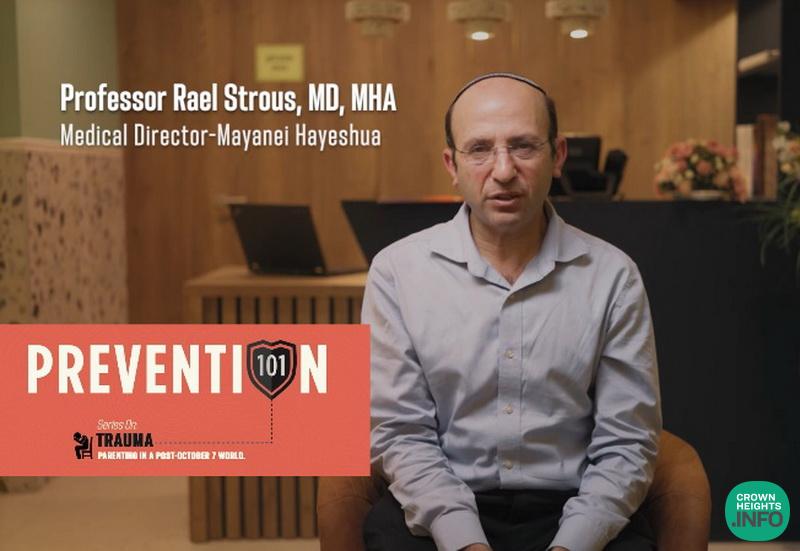
Prevention101: Series on Trauma: Episode #8 – My 12-Year-Old Constantly Worries that Someone May Harm Our Family and Community, How Can I Offer Perspective Without Dismissing Reality?
Series on Trauma: Episode 8 – Parenting in a Post-October 7th World. The series addresses questions regarding trauma following the massacre of October 7th and the surge of global anti-Semitism.
My 12-year-old constantly worries that someone may harm our family and community. How can I offer perspective without dismissing reality?
A sophisticated parent-child relationship is open to where the child is at. We should be open and talk about the reality if there is a danger, but at the same time, do it in a reassuring and caring manner that reassures and calms the child in the end.
In an interaction with a child who has spoken about a situation with open communication, we want to focus on the reality of the situation. Often, when there’s uncertainty and fear, children fantasize and go to the extreme because they don’t have perspective over the entire situation.
As responsible, caring adults, we need to give perspective and reality to that situation. If we are sensitive to the fact that maybe the child is responding in an extreme manner that’s out of touch with reality, we need to put that into context and set the limits of what is really a danger and what is not. Having said that, if there really is a danger, we need to express it and we can’t run away from it. At the same time, we need to reassure the child that we are aware of it and it can be managed.
It’s important to acknowledge that sometimes things do get out of hand, such as what happened on the seventh of October. It’s crucial to understand that such occurrences are not representative of our everyday reality. We do have faith in our security forces, and we do have faith in those who are protecting us, and the child should have faith that the parents will do whatever they can to keep the child safe. While there are instances where they may fall short, it doesn’t diminish the fact that life is generally good, safe, and filled with happiness. Children will pick up this attitude from us.
If we’re going through life right now under a situation of uncertainty, and are completely paralyzed or overwhelmed by the trauma and anxiety, children will pick up on it and feel the same thing. It is okay to experience fear. It is okay to experience uncertainty. But it is not okay to feel overwhelmed because that affects function, and that’s not necessarily the reality of the situation.
We must guide our children in discerning what is truly dangerous and what isn’t, providing them with understanding and perspective. At the same time, it’s essential to uphold functionality in their lives, assisting them in reaching their potential even amid challenging or uncertain circumstances.










